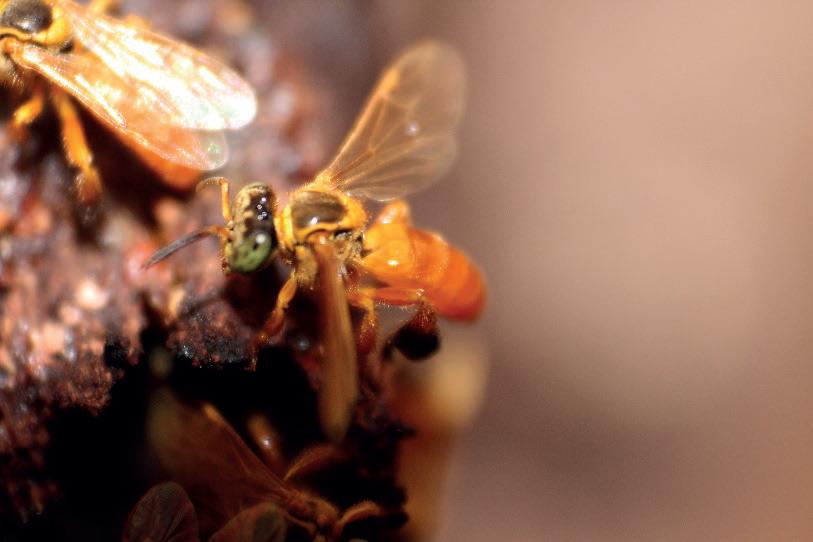Mayra Alejandra Galindo Panqueva
Other projects
14 May 2019
Wild Bees and Agroecology: Strategies for the Protection and Conservation of Wildlife in Tropical Dry Forest
8 Sep 2021
Establishment of a Native Bee Sanctuary as a Conservation Strategy for the Tropical Dry Forest in the Uraku Foundation Nature Reserve
This project aims to understand the diversity of species of wild bees (Hymenoptera: Apoidea: Anthophila) and pollen loads in a dry tropical forest.

Tetragonisca angustula
The dry tropical forest in Colombia is among the most threatened ecosystems in the country with a relictualidad 8% of its original range and representation in protected areas only 5%. Historically, these forests have been faced with different pressures as are large populations of humans, deforestation, fragmentation, agricultural expansion, livestock, fire and mining: why today is considered one of the biomes most threatened tropical and presents conservation priority nationally.
In this scenario, biodiversity and the different ecological processes that ensure the functionality of this biome, which includes the service of pollination, where different agencies play a key role, including bees, which, according to current reports, pollinate will affect around 70% of the world's plants.
These processes and ecological services have been poorly studied in dry forests, particularly in Colombia, where research on these is just emerging. Which is why, to ensure the conservation of these ecosystems, it is necessary to increase research efforts that allow us a better understanding of their ecology, functioning, and ecosystem value.
The project will take place in the Wildlife Sanctuary - Los Besotes, Valledupar Cesar, which represents a significant portion of Tropical dry forest in the foothills of the Sierra Nevada de Santa Marta. Sampling was carried out in three different successional stages (early, intermediate and late), in the rainy and dry seasons.
The palynological analyzes were performed with samples of flower buds and pollen loads of bees whose identification will provide the information necessary for the preparation of palynological atlas of the area and the guidance of pollen and bees in this forest.
This project will serve as input to understand different dynamics that are occurring in tropical dry forests, since a better understanding of the diversity of these will allow sustainable use and conservation.
At the regional level, contribute to the knowledge of the fauna of bees and vegetation associated with tropical dry forest of Los Besotes. Locally, it will help raise awareness about bees and importance to ecological processes and visualizes human welfare, since for the project will work with local communities, educational institutions and environmental authorities.